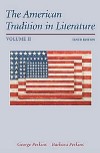America's "good grey poet" was born on Long Island, New York, to Dutch and English parents. While his mother, Louisa Van Velsor, labored to care for their nine children-four of them invalids--his father, Walter, Sr., worked as a carpenter and house builder. Like his siblings, Walter, Jr., the second oldest of the nine, withdrew early from school to find work to help pay the family's expenses. He secured a job in a local printing company and fell in love with the profession, continuing his education at the press. A voracious reader, he swept through all of the major English and European literary classics. The printer's trade led him to journalism, and Whitman took several editing positions in the early 1840's. He founded the Long Islander before accepting posts with several other newspapers. In 1848, he left New York to relocate in New Orleans where he worked for only a few months on the editorial staff of the New Orleans Crescent. Angered by his encounter with the heinous practices of slavery in the deep South, on his return to New York Whitman founded a "free soil" newspaper, the Brooklyn Freeman, that became his voice for the anti-slavery movement. At the same time, Whitman was beginning to develop his poetry and the various conventions of what came to be called "free verse." He finished his first volume, Leaves of Grass, and when no publisher would accept it on moral grounds, Whitman printed the first 1,000 copies privately. His subsequent seven revisions became the principal labor of his literary life. Responding to Emerson's call in "The Poet" for such a bard to rise up out of the American experience to clarify the nation's spirituality, Whitman sent a copy of the first edition of his twelve-poem volume of Leaves of Grass to his spiritual mentor in Concord. Emerson was delighted with the literary "sunbeam," and he sent his now famous note back to New York, greeting his younger protégé "at the beginning of a great career." In time, Emerson, Thoreau, Bronson Alcott, Oscar Wilde, and other literati on both sides of the Atlantic would make their pilgrimage to honor "America's national poet." For the most part, however, the majority of Americans ignored both the man and his work, and Whitman lived in poverty all of his life, selling a few copies of his work here and there out of his own home. Whitman survived through "literary hack work and journalism" in Brooklyn, all the while continuing to work on the next edition of his poems. He published the second edition of Leaves of Grass in 1856 and the primary edition in 1860. The outbreak of the Civil War, however, interrupted his work on Leaves, and when his brother George was wounded in 1862, Whitman relocated to Washington, D. C. to help him. Whitman stayed on in the capital after his brother recovered, serving as a war nurse and clerk in the Union Army's paymaster's office. Out of these war experiences came Drum Taps (1865). Its renowned tribute to the assassinated President Lincoln, "When Lilacs Last in the Dooryard Bloomed," was the centerpiece of this collection of Civil War poems. In 1865, Whitman continued his government work with a short-lived appointment to the Bureau of Indian Affairs. When his supervisor discovered that Whitman was, in fact, the author of the "notorious" Leaves of Grass, his supervisor dismissed him on moral grounds. Whitman soon found work, however, in the attorney general's office, and an article, "The Good Grey Poet," published by his friend, William Douglas O'Conner, did much to vindicate Whitman's work and reputation. Between 1866 and 1874, before he left his post in Washington, D.C., Whitman managed to publish two more editions of Leaves of Grass. In 1873, however, he suffered a severe stroke from which he never fully recovered. His brother George took him in to his own home in Camden, New Jersey, while he was recuperating. In time, Whitman became well enough to give occasional lectures at local libraries and other public arenas, and in 1879 he was able to complete his long-planned tour of the American western states and territories, traveling as far west as Nevada. In 1881 Osgood and Company, a Boston publisher, accepted Leaves of Grass for printing, and the book sold well until the district attorney classified the work as obscene. Frustrated, Whitman took the plates first to Rees Welsh and later to David McKay, in Philadelphia, from where afterwards his works continued to be published. Whitman's only notable royalties came from the sales of Specimen Days and Collect (1882). Orders for the book were so strong that the sales earned him enough to purchase his little house on Mickle Street in Camden, where he would live out the remainder of his days. For the next decade, he continued to receive visitors there who sought him out, posed for many photographs, and accepted the accolades of his followers. In 1892, even on his deathbed, Whitman signed the final edition of Leaves of Grass, and he was laid to rest in Camden's Harleigh Cemetery in a tomb of his own design. |



 2003 McGraw-Hill Higher Education
2003 McGraw-Hill Higher Education